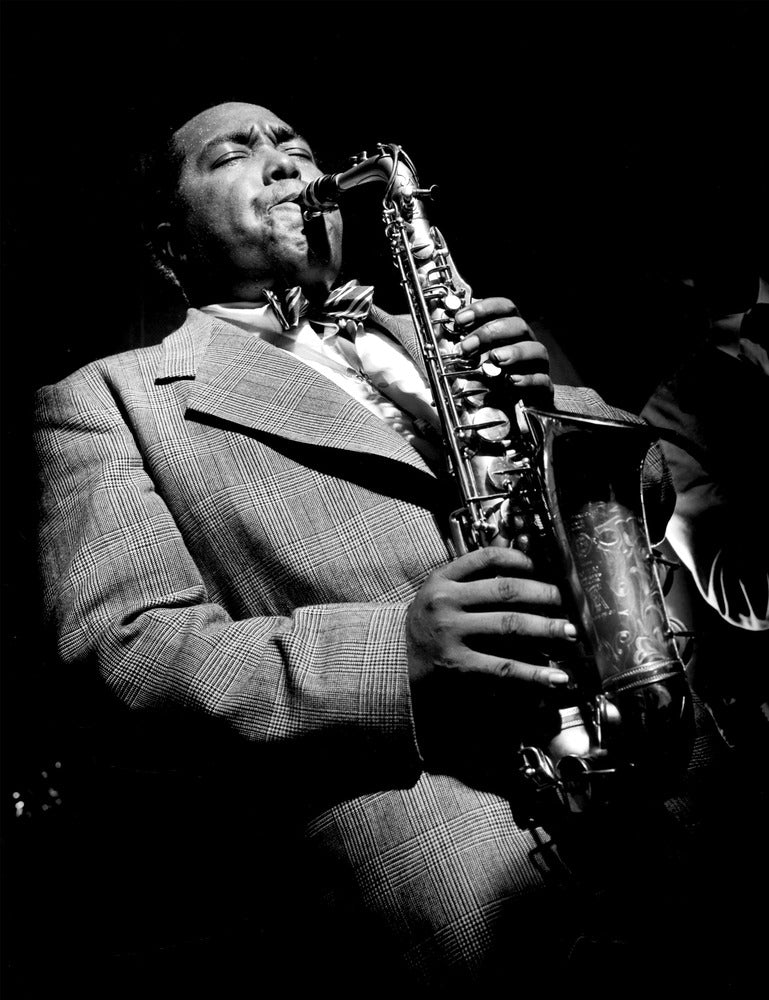Charlie Parker

Charlie Parker was born in 1920 in Kansas City, capital of jazz during the prohibition period. Influenced by Louis Armstrong, Count Basie and Duke Ellington, he joined his school band at 14 years old where he played tuba, clarinet and alto saxophone.
At 17, he already participated in several jazz ensembles and met his idols Lester Young and Coleman Hawkins during jam sessions. He recorded his first solos in pianist Jay McShann's band.
In 1939, he left Kansas City for New York. He worked as a dishwasher in the café where pianist Art Tatum regularly performed, whose work influenced him considerably. In 1942, he joined Earl Hines' band, which also included Dizzy Gillespie. It is at this period that they elaborate, with Thelonious Monk, Charlie Christian, Max Roach and Kenny Clarke, a new style of jazz: the bebop. During improvised jam sessions at Minton's Playhouse, they laid the foundations of this new musical trend, breaking with the swing that white musicians had appropriated. In 1945, Charlie Parker and Dizzy Gillespie made the first real bebop recordings, such as Hot House and Salt Peanuts.
His addiction to drugs made his health decline and disrupted his career from 1946. Nevertheless, he continued to give concerts and recordings of quality, notably with his quintet which included Miles Davis and Max Roach. He also took part in the Jazz at the Philharmonic concerts, then went on tour in France. Charlie Parker died in 1955, at the age of 34, and was the greatest soloist and improviser in the history of jazz.
If Charlie Parker sometimes played our instruments, the artist had with the saxophone a totally free, independent relationship... in his image. It is said that his genius allowed him to make any saxophone sound wonderful. From 2005 to 2011, Selmer Paris produced five "Collector" versions of a saxophone in tribute to Charlie Parker, aka "Bird". Selmer's best engravers have created an original engraving around the poetic theme of the bird on five continents.
Photo credit: Herman Leonard / Redferns